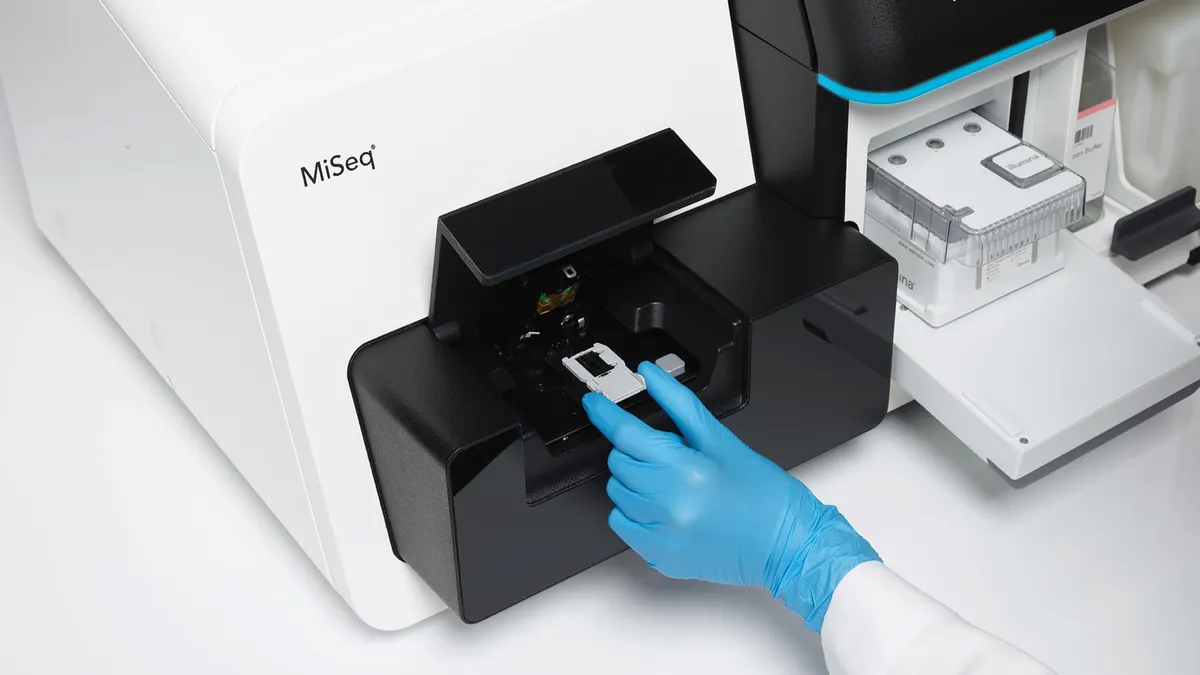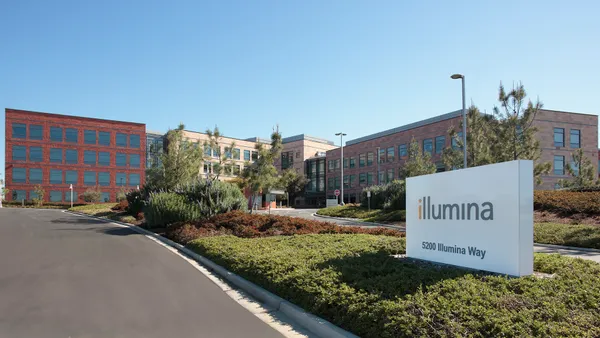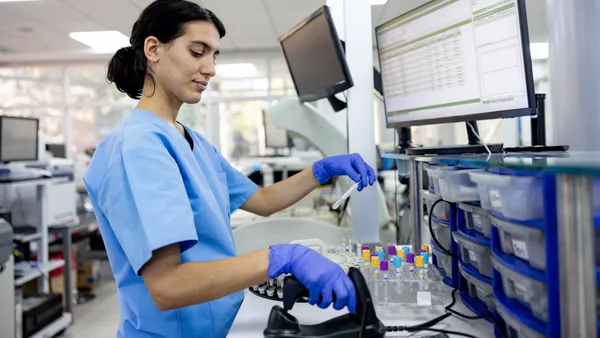Dive Brief:
- Illumina has opened its first manufacturing facility in China, enabling it to make gene sequencing instruments and consumables for the local market.
- The facility in Shanghai initially will produce 16 sequencing reagents for clinical use. Illumina aims to start making the first batch of products by the end of the year and achieve complete localized production of gene sequencing instruments and consumables in the next five years.
- News of the opening of the Shanghai site comes weeks after Illumina agreed to pay $325 million to settle U.S. litigation with affiliates of Chinese sequencing company BGI.
Dive Insight:
Illumina has grown sales in Greater China in recent years, with revenue rising from $185 million in the first six months of 2019 to $245 million in the same period of 2022. The 2022 figure is down from the $259 million the company generated in the first half of last year, a trend Illumina blamed on China’s COVID-19 restrictions and shutdowns.
The genome sequencing leader has grown in China despite lacking local manufacturing capacity. Illumina now has addressed that gap in its supply chain infrastructure by opening a production plant in Shanghai.
“Our new manufacturing site in Shanghai will allow us to bring more of our innovative and life-changing technologies to the region,” Kevin Pegels, chief of global operations at Illumina, said in a statement. “This investment also creates greater efficiencies in our global supply chain to meet increasing customer demand in this critical growth geography.”
The opening of the facility follows other efforts focused on China. Illumina won approval for its MiSeqDx sequencing system in China in 2018, positioning it to sell the device for in-vitro diagnostic testing, and followed up with the authorization of NextSeq 550Dx two years later. The company also has worked with investor group Sequoia Capital China on a genomic incubator in Shanghai.
Still, recent news involving Illumina and China have focused on its multifront legal fight with MGI Tech and Complete Genomics, affiliates of BGI. Illumina resolved the cases in July in a deal that saw all the parties agree to not to sue each other for the next three years.










